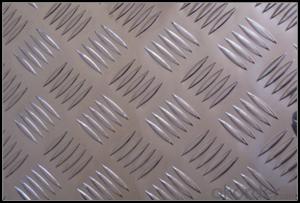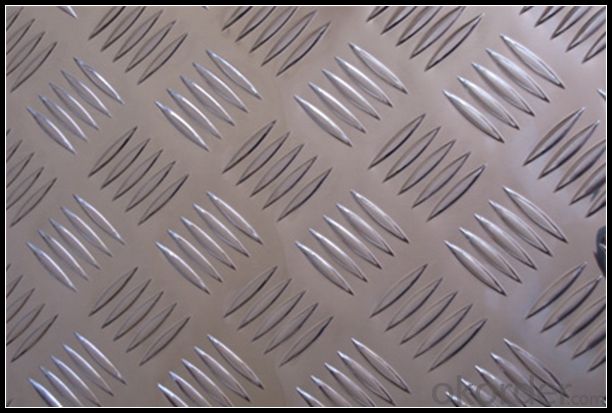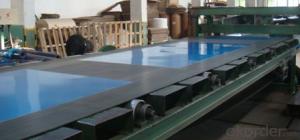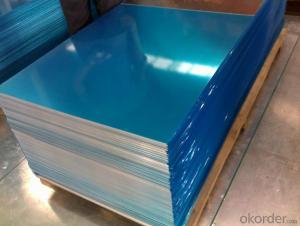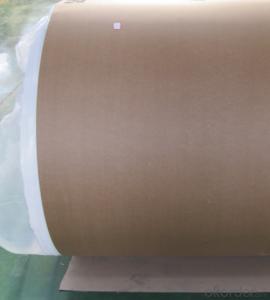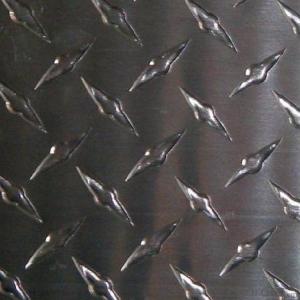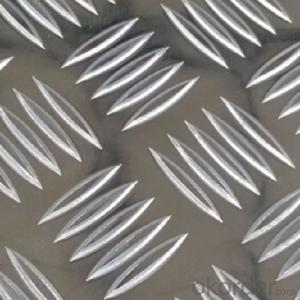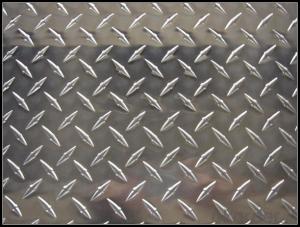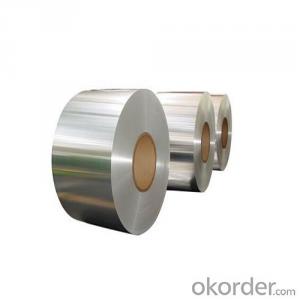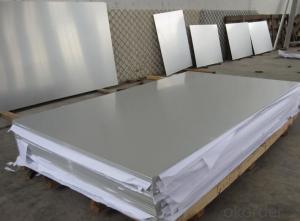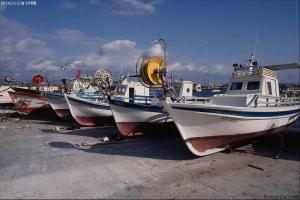Aluminum Flashing Sheets - Aluminium Chequer Plate 5052 for Boat Panel
- Loading Port:
- Shanghai
- Payment Terms:
- TT OR LC
- Min Order Qty:
- 5 m.t.
- Supply Capability:
- 10000 m.t./month
OKorder Service Pledge
OKorder Financial Service
You Might Also Like
Specification
1. Specification of Aluminium Chequer Plate 5052 for Boat Panel
Alloy Number | AA1XXX,AA3XXX,AA5XXX |
Temper | H12, H14, H16, H18, H22, H24, H26, H32, HO, F |
Thickness | 0.1mm – 500mm |
Width | 10mm- 2200mm |
Standard | GB/T3880-2006, ASTM, ISO, EU standard |
2. Application of Aluminium Chequer Plate 5052 for Boat Panel
Transfporation, vehicle, antiskid plate,toolbox,canopy body,
3. Feature of Aluminium Chequer Plate 5052 for Boat Panel
Surfact Quality :
Be free from Oil Stain, Dent, Inclusion, Scratches, Stain, Oxide Dicoloration, Breaks, Corrosion, Roll Marks, Dirt Streaks and other defect which will interfere with use,
Mechenical Property:
Chemical Composite and Mechanical Property
4. Certificate:
SGS and ROHS(if client request, paid by client), MTC(plant provided), Certificate of Origin(FORM A, FORM E, CO), Bureau Veritas and SGS (if client request, paid by client), CIQS certificate
5. Image of Aluminium Chequer Plate 5052 for Boat Panel
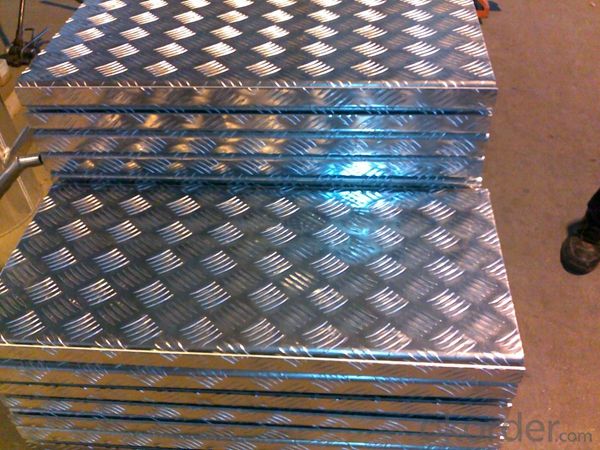
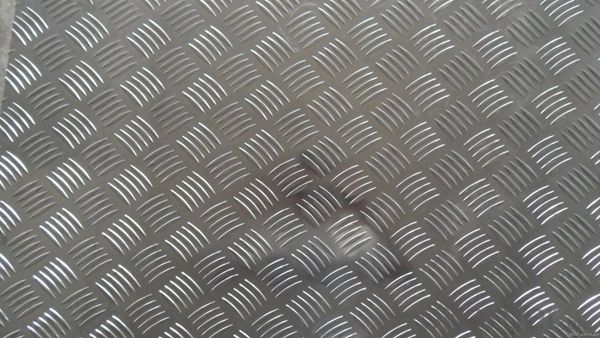
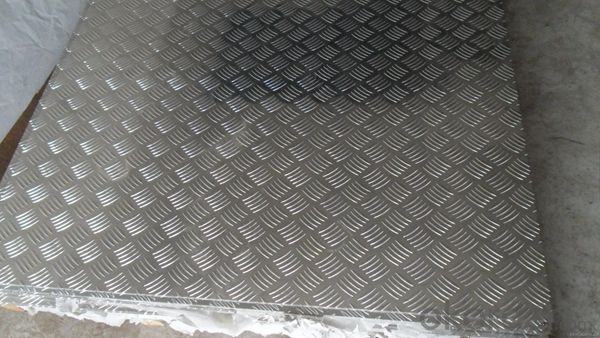
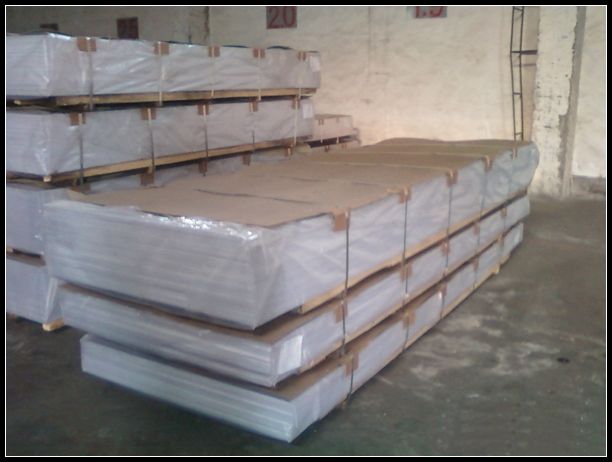
6. Package and shipping of Aluminium Chequer Plate 5052 for Boat Panel
First, plastic cloth with drying agent inside; Second, Pearl Wool ; Third, wooden cases with dry agent , fumigation wooden pallets, aluminum surface could cover blue PVC film
7. FAQ
1) What is the delivery time?
Dpends on actual order, around 20 to 35 days
2)What is the QC system:
We have QC staff of 20 persons and advanced equipment, each production is with MTC traced from Aluminum ingot lot.
3) What market do you mainly sell to?
Australia, America, Asia, Middle East, Western Europe, Africa etc
- Q: Can the aluminum sheets be used for heat dissipation purposes?
- Indeed, heat dissipation purposes can be served by employing aluminum sheets. The thermal conductivity of aluminum is widely recognized for its excellence, signifying that it adeptly conducts heat. Consequently, it emerges as an optimal substance for the dispersion of heat and its subsequent removal from a thermal origin. The utilization of aluminum sheets spans across multiple domains, encompassing heat sinks, cooling panels, and heat exchangers, all of which contribute to the effective dissipation of heat and the prevention of overheating. Moreover, the advantageous attributes of aluminum, such as its lightweight nature, resistance to corrosion, and ease of manipulation, render it a favored choice for heat dissipation within diverse industries, encompassing electronics, automotive, and aerospace.
- Q: I have heard that drinking from aluminum cans is bad for our health. However, I have learned that today's 'aluminum' cans are actually more like a plastic can due to all the coatings, etc. Do we really have any risks associated with regular cans?
- This Site Might Help You. RE: Are today's aluminum cans bad for our health? I have heard that drinking from aluminum cans is bad for our health. However, I have learned that today's 'aluminum' cans are actually more like a plastic can due to all the coatings, etc. Do we really have any risks associated with regular cans?
- Q: Can aluminum sheets be an alternative to wood in certain applications?
- Certainly, aluminum sheets can serve as a viable substitute for wood in specific applications. Aluminum boasts numerous advantages over wood, rendering it a favored choice across various industries. Primarily, aluminum exhibits exceptional durability and longevity due to its resistance to corrosion, rot, and pests. Consequently, it proves ideal for outdoor usage or areas with high moisture levels. Moreover, aluminum sheets are lightweight, facilitating easier handling and transportation in comparison to wood. Additionally, they possess a commendable strength-to-weight ratio, enabling them to withstand heavy loads while maintaining their structural integrity. Moreover, aluminum stands as a sustainable material, capable of indefinite recycling without compromising its properties. Conversely, wood necessitates the felling of trees, thereby carrying environmental implications. Aluminum sheets also offer a high degree of design flexibility, readily assuming complex structures through shaping, bending, and forming. This adaptability allows for innovative and creative applications. Furthermore, aluminum exhibits excellent thermal and electrical conductivity, rendering it suitable for scenarios where heat dissipation or electrical conductivity plays a crucial role. Nonetheless, it is crucial to acknowledge that wood retains its unique characteristics and benefits in certain applications. Wood imparts a warm and natural aesthetic that aluminum fails to replicate, making it a preferred choice in interior design or furniture manufacturing. Additionally, wood qualifies as a renewable resource and exhibits excellent insulation properties, proving advantageous in construction or insulation applications. Consequently, while aluminum sheets can serve as a fantastic substitute for wood in numerous instances, the ultimate choice hinges upon the specific requirements and desired outcomes of the application at hand.
- Q: What is the coefficient of expansion for aluminum sheets?
- The coefficient of expansion for aluminum sheets is approximately 23.1 x 10^-6 per degree Celsius.
- Q: Can aluminum sheets be an alternative to plastic in certain applications?
- Yes, aluminum sheets can indeed be an alternative to plastic in certain applications. Aluminum is a highly versatile and sustainable material that offers several advantages over plastic, such as being more durable, resistant to UV rays, and having a longer lifespan. Additionally, aluminum is recyclable and can be reused indefinitely, making it a more environmentally friendly choice. However, the suitability of aluminum sheets as an alternative to plastic would depend on the specific application and requirements.
- Q: What are the dimensions of standard aluminum sheets?
- Standard aluminum sheets typically have dimensions of 4 feet by 8 feet. However, it's important to note that aluminum sheets come in various thicknesses, ranging from thin gauge sheets to thicker plates. The thickness of standard aluminum sheets can vary from 0.025 inches to 0.25 inches or more. Additionally, aluminum sheets can be cut and customized to different sizes and shapes based on specific project requirements.
- Q: Is it possible to utilize aluminum sheets in a home renovation project?
- <p>Yes, you can use aluminum sheets for your home renovation project. Aluminum is a versatile material known for its strength, durability, and resistance to corrosion. It's commonly used for roofing, siding, and even for decorative purposes. Aluminum sheets are lightweight, easy to install, and can be painted or coated to match your home's aesthetic. They also offer good thermal performance and can be recycled, making them an environmentally friendly choice. However, it's important to consider the specific requirements of your project, such as the local climate, design preferences, and budget, to ensure aluminum is the best fit.</p>
- Q: If Aluminum can, in fact, not be sterilized I would love to know why.
- Sterilization refers to the ability to clean a surface of bacterium. Simply pouring rubbing alcohol on something sterilizes it. Aluminum can be sterilized just as good as any other metal. If it couldn't, would we ship our favorite drinks in cans of it?
- Q: What are the potential environmental issues that arise from the use of aluminum sheets?
- <p>Yes, there are environmental concerns related to using aluminum sheets. The production process is energy-intensive and contributes to greenhouse gas emissions. Additionally, the mining of bauxite, the primary source of aluminum, can lead to deforestation and habitat destruction. The disposal of aluminum waste can also lead to pollution if not properly managed. However, aluminum is highly recyclable, which can mitigate some of these concerns if recycling practices are adopted widely.</p>
- Q: This question asks for methods to ensure a project remains cost-effective when using aluminum sheets.
- <p>To ensure your project is cost-effective using aluminum sheets, first, source high-quality aluminum at competitive prices. Consider buying in bulk to reduce per-unit costs. Second, optimize your design to minimize material usage without compromising strength. Use precise cutting techniques to reduce waste. Third, collaborate with reliable suppliers who can offer cost-effective solutions and may provide discounts for long-term partnerships. Lastly, monitor and control your project's budget closely, and consider the lifecycle costs, including maintenance and potential resale value, to ensure long-term cost-effectiveness.</p>
Send your message to us
Aluminum Flashing Sheets - Aluminium Chequer Plate 5052 for Boat Panel
- Loading Port:
- Shanghai
- Payment Terms:
- TT OR LC
- Min Order Qty:
- 5 m.t.
- Supply Capability:
- 10000 m.t./month
OKorder Service Pledge
OKorder Financial Service
Similar products
Hot products
Hot Searches
Related keywords
